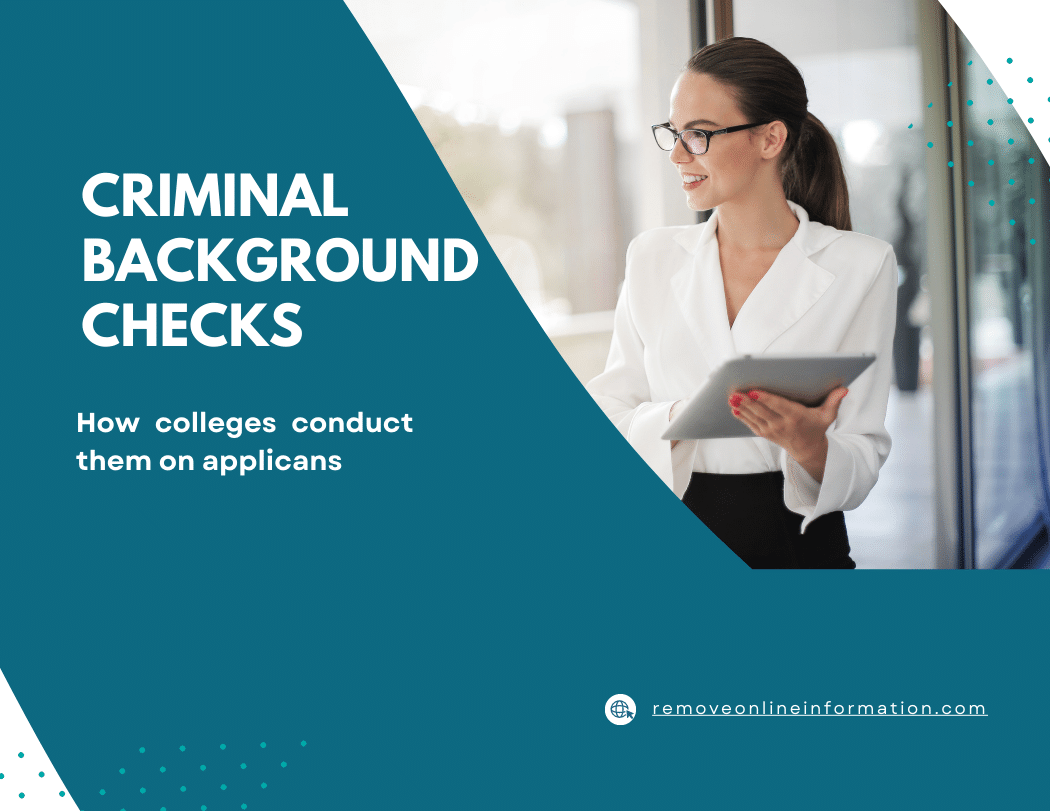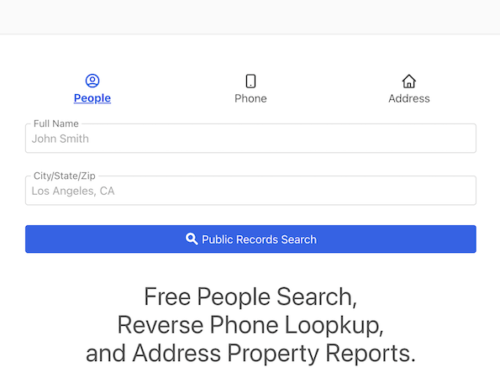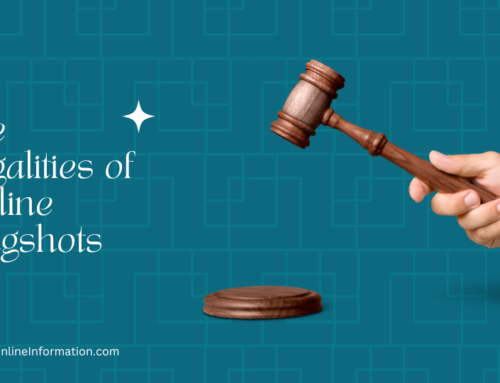Are you curious about what happens behind the scenes when you submit your application to a university? Have you ever wondered how universities ensure they are admitting students who will contribute positively to their community? Well, get ready to have your questions answered! In this blog post, we will peel back the layers and dive into the fascinating world of background checks conducted by universities. Find out how academic institutions carefully evaluate applicants beyond their grades and test scores. From uncovering hidden talents to unmasking potential red flags, join us as we reveal the secrets behind how universities make crucial decisions about who gets admitted. Let’s embark on an enlightening journey of transparency and discovery – it’s time to unmask the process!
Overview of the Background Check Process
Universities have a responsibility to ensure the safety of their students, staff, and faculty. To do this, they must carefully screen applicants for any criminal history that could pose a threat to the campus community. The background check process is one way that universities can gather this information.
There are many different types of background checks that universities can conduct, but the most common is a criminal background check. This type of check will search for any criminal history that an applicant may have. The results of this check can help universities make informed decisions about who to accept into their programs and who to reject.
Not all criminal history is relevant to the screening process, however. For example, an applicant with a speeding ticket is not likely to pose a threat to campus safety. Therefore, universities must use discretion when reviewing the results of criminal background checks. They should only consider information that is relevant to the position for which an applicant is applying.
The background check process is important for ensuring the safety of university campuses, but it is not perfect. Universities must carefully consider the information they find during a background check and use their best judgement when making decisions about applicants.
Types of Background Checks Used by Universities
As the college admissions process becomes increasingly competitive, universities are turning to background checks as a way to screen applicants. While most schools only conduct a basic criminal background check, some institutions are using more sophisticated methods, such as social media screening and credit checks.
Criminal Background Checks: Most colleges and universities will run a criminal background check on all applicants. This check will reveal any felony or misdemeanor convictions, and can be used to disqualify an applicant from admission.
Social Media Screening: With the rise of social media, many colleges are now incorporating this into their background check process. Schools will typically search for any red flags that may appear in an applicant’s online presence, such as references to drug use or violent behavior.
Credit Checks: A growing number of colleges are running credit checks on applicants as well. Poor credit can be seen as a sign of irresponsibility, and may be used to deny admission.
The background check process is designed to help universities make informed decisions about which applicants to admit. By using a variety of methods, schools can get a better sense of each applicant’s character and whether they would be a good fit for the institution.
Common Questions Asked During a University Background Check
- What is a university background check?
- Why do universities conduct background checks on applicants?
- What information do universities look for in a background check?
- How do universities obtain this information?
- How does the university background check process work?
Benefits and Drawbacks of Conducting Background Checks on Applicants
The use of criminal background checks has been on the rise in recent years as employers seek to protect their workplace and employees. While there are many benefits to conducting a criminal background check, there are also some drawbacks that should be considered.
Benefits:
- Helps to ensure a safe workplace – One of the main reasons why employers conduct background checks is to ensure that their workplace is safe for all employees. By running a criminal background check, employers can identify any potential red flags that may indicate that an applicant is not suitable for the position.\
- Helps to deter crime – In addition to ensuring a safe workplace, criminal background checks can also help to deter crime. If an employer knows that they are running background checks on all applicants, it may discourage individuals with a criminal history from applying for the position.
- Provides peace of mind – For many employers, knowing that they have conducted a thorough background check on all applicants provides peace of mind. This can be especially important for positions that involve working with children or vulnerable adults.
Drawbacks:
- Can be time-consuming – Conducting a comprehensive criminal background check can take several weeks or even months to complete. This can be frustrating for employers who are trying to fill a position quickly.
- Can be expensive – Hiring an outside firm to conduct a criminal background check can be costly, particularly for small businesses.
- May not catch everything – While criminal records from arrests taking place in the USA that have not been expunged or sealed will be revealed by performing a comprehensive background check on an applicant, other relevant records might not, such as those that took place outside the United States, expunged and sealed arrest records, juvenile cases, and others.
How Long Does it Take to Receive Results?
The process of conducting a background check on an applicant can vary depending on the university, but it typically takes between two and four weeks to receive results. During this time, the university will review the applicant’s criminal history, credit history, and any other relevant information. If the applicant has a clean record, the university will likely offer admission. However, if the applicant has a questionable history, the university may require additional information or may decide to deny admission.
Differentiating Between Legitimate and Fake Results
There are a few key ways to differentiate between legitimate and fake results when it comes to university background checks on applicants. For one, be sure to check the source of the information. If it’s coming from an unreliable or unknown source, it’s likely not legitimate. Secondly, cross-check the information against other sources to see if it matches up. If there are discrepancies, that’s another sign that the information may not be accurate. Take into account the applicant’s overall character and reputation when looking at the results of the background check – if everything else lines up but there are red flags with the applicant themselves, that could indicate that the results are fake.
Tips for Applying to Universities with a Complicated Background
There are a few things to keep in mind when applying to universities with a complicated background. The first is to be honest about your past. Universities are required to conduct background checks on all applicants, and they will find out if you have been less than truthful. Being honest from the start will save you a lot of trouble down the road.
The second tip is to be prepared to explain your background in detail. The admissions committee will want to know why you have made the choices you have and how you have overcome any challenges you have faced. Be ready to tell your story in a way that shows who you are as a person and how you have grown from your experiences.
Don’t let your past define you. You are more than your background, and the admissions committee will see that. Keep your focus on what you have accomplished despite any challenges and let that be what shines through in your application.
We hope this article has helped to shed light on the process of how universities conduct background checks on applicants. Knowing what information is collected and used can help you make informed decisions when applying for college, so be sure to review your university’s policy before submitting an application. Additionally, stay up-to-date with any changes in state or federal laws that may affect your personal records that are being used in the admissions process. By taking these extra steps and understanding exactly what goes into a background check, you can rest assured knowing that the school’s decision will be based solely on academic performance and other relevant criteria.



